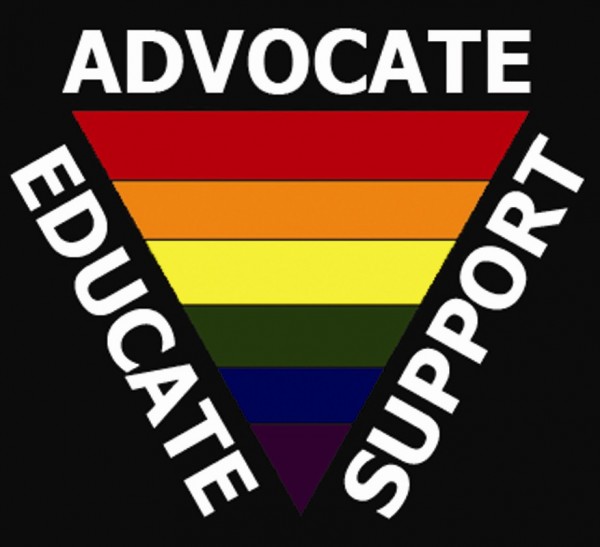The presence of gay-straight alliance (GSA) groups in schools reduces the risk of suicide among both LGBTQ and straight teens, according to a study published in the International Journal of Child, Youth and Family Studies and funded by the Canadian Institute of Health Research.
Using data from the 2008 British Columbia Adolescent Health Survey for grades 8-12, the study found that in schools where gay-straight alliance groups have been in existence for three or more years:
- The odds of homophobic discrimination and suicidal thoughts were reduced by more than half among lesbian, gay, bisexual boys and girls compared to schools with no GSA.
- There were also significantly lower odds of sexual orientation discrimination for heterosexual boys and girls.
- Heterosexual boys were half as likely to attempt suicide as those in schools without GSAs.
Gay-straight alliance groups stem back to the late 1980’s, when discussions of sexuality were much less open than they are today. GSA’s have proliferated in universities and secondary schools since then, with the goal of creating safe spaces on campus for all students–regardless of sexual orientation.
“We know that LGBTQ students are at higher risk for suicide, in part because they are more often targeted for bullying and discrimination,” said Elizabeth Saewyc, lead author of the study, to the University of British Columbia press. “But heterosexual students can also be the target of homophobic bullying. When poliices and supportive programs like the GSAs are in place long enough to change the environment of the school, it’s better for students’ mental health, no matter what their orientation.”
In addition to documenting the benefits of GSA presence on schools, the study also found that on campuses where anti-homophobic policies have been in place for 3+ years:
- The odds of suicidal thoughts and attempts for gay and bisexual boys were more than 70 percent lower, and suicide attempts among lesbian and bisexual girls were two-thirds lower.
- Heterosexual boys had 27 percent lower odds of suicidal thoughts than heterosexual boys in schools without such policies.
The findings may lend more credence to LGBTQ activists in the United States who are struggling with conservatives to control the conversation about sexuality in public schools.
In 2011, a bill outlawing the discussion of any sexuality except the hetero variety passed the state Senate in Tennessee, and was debated for two years before dying in the House. The most onerous feature of the bill’s final incarnation was a provisionthat would have compelled teachers to notify parents of students they suspected were gay.
Legislators in Missouri also passed an ill-fated “Don’t Say Gay” bill in 2012 similar to the one killed in Tennessee, and though it went nowhere, one of its main sponsors was later tapped to head the Missouri House Education Committee in 2013.

